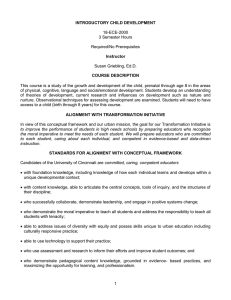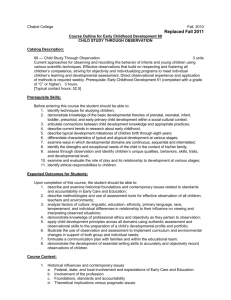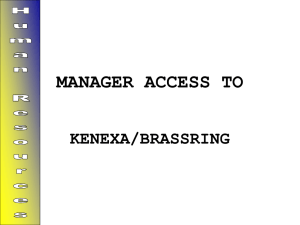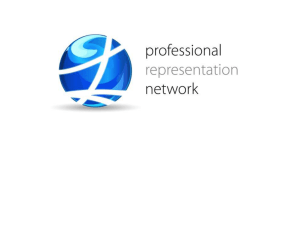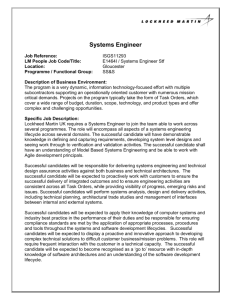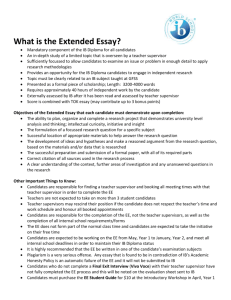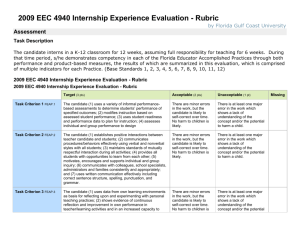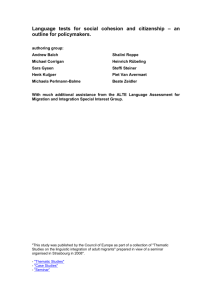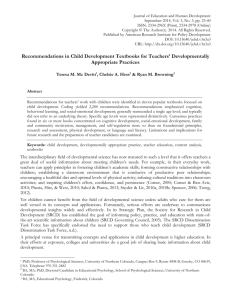EDF 3201 Field Experience Requirement
advertisement
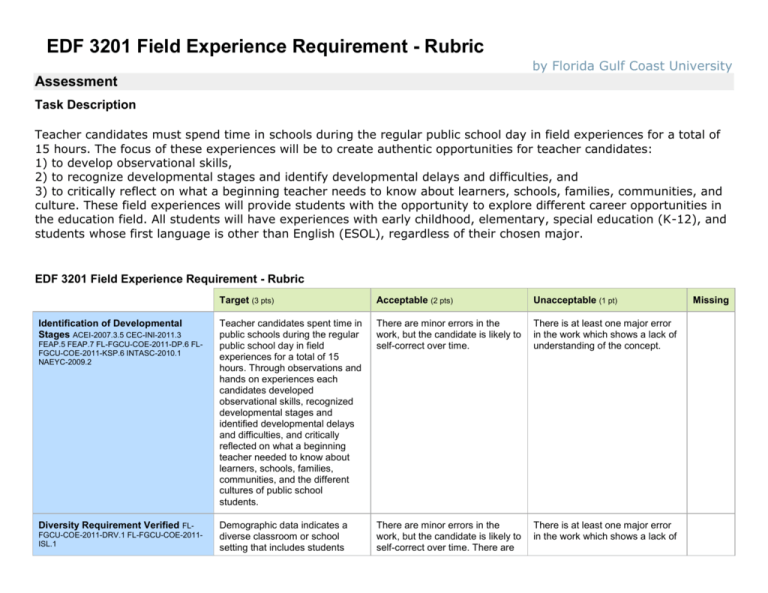
EDF 3201 Field Experience Requirement - Rubric by Florida Gulf Coast University Assessment Task Description Teacher candidates must spend time in schools during the regular public school day in field experiences for a total of 15 hours. The focus of these experiences will be to create authentic opportunities for teacher candidates: 1) to develop observational skills, 2) to recognize developmental stages and identify developmental delays and difficulties, and 3) to critically reflect on what a beginning teacher needs to know about learners, schools, families, communities, and culture. These field experiences will provide students with the opportunity to explore different career opportunities in the education field. All students will have experiences with early childhood, elementary, special education (K-12), and students whose first language is other than English (ESOL), regardless of their chosen major. EDF 3201 Field Experience Requirement - Rubric Identification of Developmental Stages ACEI-2007.3.5 CEC-INI-2011.3 FEAP.5 FEAP.7 FL-FGCU-COE-2011-DP.6 FLFGCU-COE-2011-KSP.6 INTASC-2010.1 NAEYC-2009.2 Diversity Requirement Verified FLFGCU-COE-2011-DRV.1 FL-FGCU-COE-2011ISL.1 Target (3 pts) Acceptable (2 pts) Unacceptable (1 pt) Teacher candidates spent time in public schools during the regular public school day in field experiences for a total of 15 hours. Through observations and hands on experiences each candidates developed observational skills, recognized developmental stages and identified developmental delays and difficulties, and critically reflected on what a beginning teacher needed to know about learners, schools, families, communities, and the different cultures of public school students. There are minor errors in the work, but the candidate is likely to self-correct over time. There is at least one major error in the work which shows a lack of understanding of the concept. Demographic data indicates a diverse classroom or school setting that includes students There are minor errors in the work, but the candidate is likely to self-correct over time. There are There is at least one major error in the work which shows a lack of Missing from varying races, ethnicity, linguistic backgrounds, and/or ability levels. minor errors in the work, but the candidate is likely to self-correct over time. understanding of the concept. Standards ACEI-2007.3.5 Communication to foster collaboration—Candidates use their knowledge and understanding of effective verbal, nonverbal, and media communication techniques to foster active inquiry, collaboration, and supportive interaction in the elementary classroom. CEC-INI2011.3 Individual Learning Differences FEAP.7 ACCOMPLISHED PRACTICE #7: Human Development and Learning FL-FGCU-COE2011-DP.6 Diversity - Believe that all individuals can learn and have a right to the appropriate support needed to help them achieve. FL-FGCU-COE2011-DRV.1 Diversity Requirement Verified - Demographic data indicates that the diversity requirement has been met and verified. FL-FGCU-COE2011-ISL.1 Impact on Student Learning - Candidate assessed impact on student learning during field experience. FL-FGCU-COE2011-KSP.6 Diversity - Recognize and understand the cultural, linguistic, and experiential diversity of local and global communities and demonstrate the ability to support strengths, accommodate needs and maximize potential for all individuals. INTASC2010.1 Learner Development: The teacher understands how children learn and develop, recognizing that patterns of learning and development vary individually within and across the cognitive, linguistic, social, emotional, and physical areas, and designs and implements developmentally appropriate and challenging learning experiences. NAEYC-2009.2 Building Family and Community Relationships: Students prepared in early childhood degree programs understand that successful early childhood education depends upon partnerships with children’s families and communities. They know about, understand, and value the importance and complex characteristics of children’s families and communities. They use this understanding to create respectful, reciprocal relationships that support and empower families and to involve all families in their children’s development and learning.
